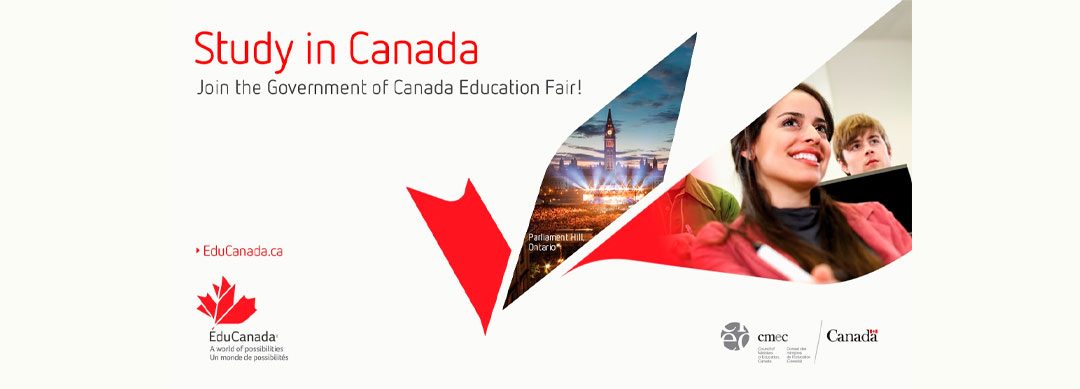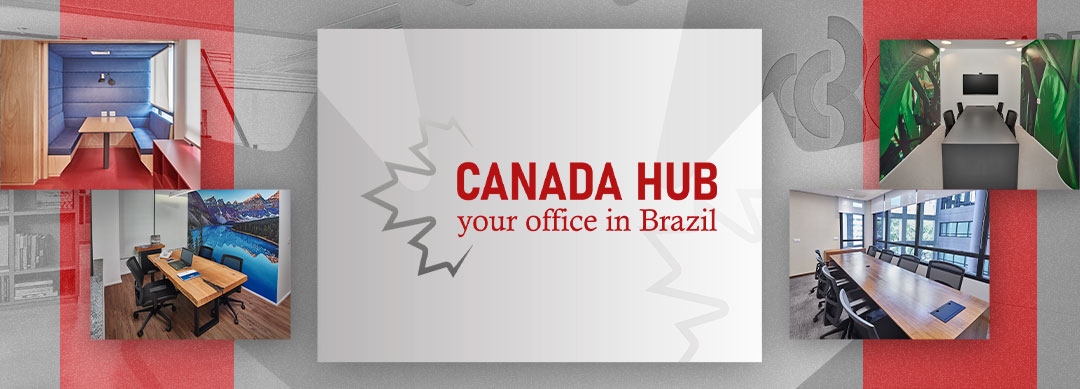For 15 years, the country has maintained its position as the main destination for Brazilian students seeking institutions abroad
By Sérgio Siscaro
The limitations imposed by social distancing did not prevent holding of this year’s edition of the EduCanadá fair. Organized by the Canadian government, it brought together, in virtual and free format, more than 50 educational institutions in the country, which were able to show participants on September 24th the main advantages of planning a study path in Canada.
The fair provided information on the different teaching modalities available – languages, high school, undergraduate, graduate, master’s degree, doctorate and technical courses. More than 3,200 Brazilian participants were also able to have their questions answered by representatives of the institutions present and authorities from the Canadian federal and provincial governments, obtaining information both on the schools and programs available and on procedures related to the issuance of student visas.
EduCanadá’s success is directly related to Canada’s very positive image among Brazilian students. This perception is reflected in the annual survey carried out by the Brazilian Educational & Language Travel Association (Belta), an entity that brings together Brazilian institutions that operate in the student exchange market. Its latest edition, launched in September, showed that, in 2019, Canada again ranked first among the main destinations for Brazilian students – a position it has held for 15 years. In terms of preference, the country surpassed, last year, the United States, Ireland, United Kingdom and Australia, which positioned themselves from the second to the fifth place in the ranking.
Preferred destination
The fact that made Canada the choice again is due to the fact that the country benefits from the main factors that influence the students’ decision: quality of life, easy to get a visa, the use of English for communication, the multicultural environment and favorable exchange rate parity. But a key factor in this decision is the high level of the Canadian education system. In the latest edition of the Programme for International Student Assessment (Pisa), launched by the Organization for Economic Cooperation and Development (OECD) last year with results for 2018, Canada scored higher than the average for countries that make up the group in reading, mathematics and science. In addition, the study found that Canadian institutions have more material and personnel resources than the average for other OECD countries.
According to the Commissioner for Commerce (Education) at the Canadian Consulate General in São Paulo, Fernanda Albano, this top position contributes to the country’s attractiveness. “To mention a few figures: 14 Canadian universities are ranked among the top 300 in the world, according to the latest Times Higher Education survey; and three MBAs are among the top 100, according to the 2020 Financial Times Global MBA Rankings. In addition, the US News & World Report’s “Best Countries” report ranks Canada among the top three in terms of “education”, and first in quality of life.” She also stresses the importance of the country’s bilingualism, which opens up the possibility for international students to study in either English or French.
According to the commissioner, Brazilian students who choose Canada are interested in all levels – high school, university or extension. “The country is the main destination for Brazilians for English and high school courses, and second for French courses – behind France only. Post-secondary education institutions (colleges and universities) are also very popular; Brazilians seek from short courses, more focused on the job market, to academic programs with opportunities for research”, she adds.
The preference for Canada was not affected by the pandemic of the new coronavirus, which led the country to impose travel restrictions. Belta’s research not only confirms this choice, but also shows the perception that Canada is an example in terms of Covid-19 control protocols, health security and infrastructure for receiving international students, as well as technological support resources for online classes.
Bilateral approach
In order to stimulate the exchange between Brazil and Canada in the educational area, the CCBC Education Committee has been dedicated to bringing together organizations from both countries, linked to basic, higher or extended education. The group, coordinated since the beginning of 2020 by the marketing director of Maple Bear Canadian School, Rafael Mangini, has also organized several initiatives to disseminate information about the Canadian and Brazilian educational context, using webinars to address topics relevant to the sector.
“Our purpose is to empower people by building bridges with companies and educational institutions. In an internal survey, we identified the main bottlenecks existing in companies – such as the need for marketing professionals, familiar with the latest technologies, or the demand for reinforcement of basic language knowledge – not only English and French, but also Portuguese, for professional beginners. We also found a strong need to train these employees in socio-emotional skills”, says Mangini. Based on these results, the Education Committee is developing a project through which 75 educational institutions, mainly from Canada, will be able to contribute to remedy points found by the research through partnerships.
According to the coordinator, events like EduCanadá show how Canada is a welcoming and accessible country for students from abroad. “Studying there is easier than people think. A study experience in Canada has the potential to transform a person’s life”, he concludes.




